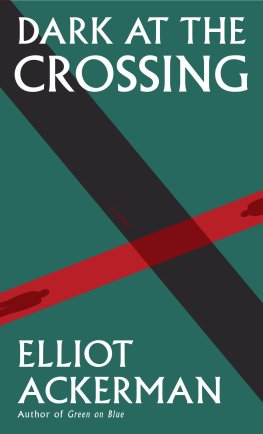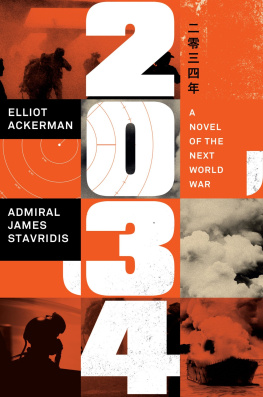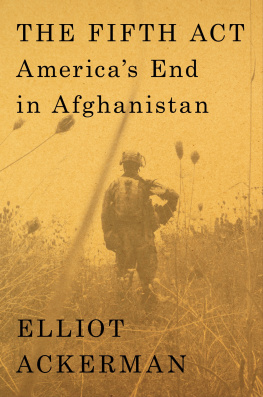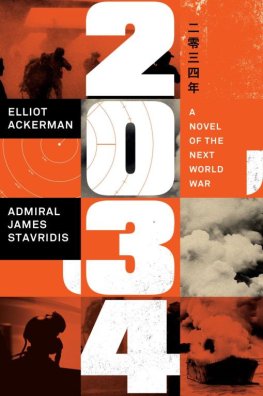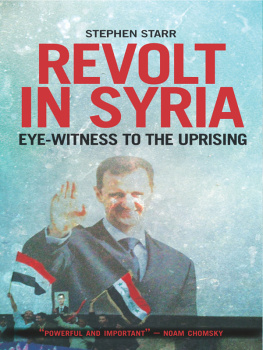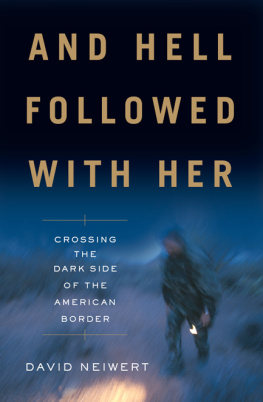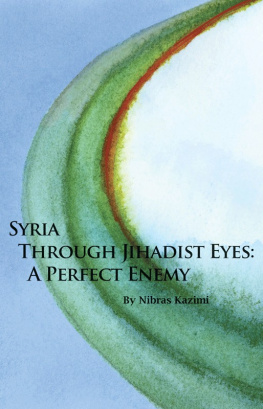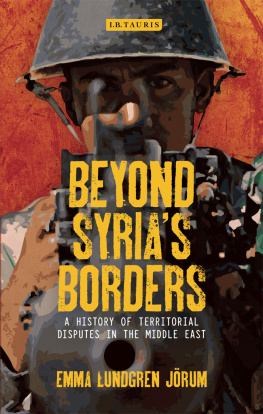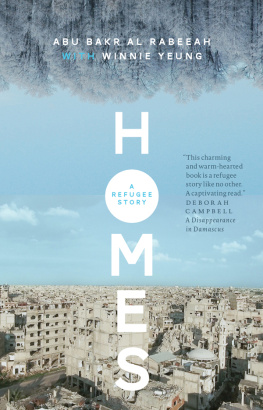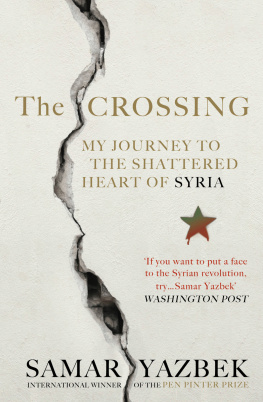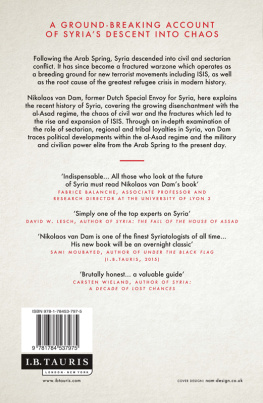Dark at the Crossing by Elliot Ackerman
For Abed,
on his way home
And afterward? What happened afterward?The way that a great experience comes to an end? A melancholy topic, for a revolt is a great experience, an adventure of the heartBut there comes a moment when the mood burns out and everything ends. As a matter of reflex, out of custom, we go on repeating the gestures and the words and want everything to be the way it was yesterday, but we know already and the discovery appalls us that this yesterday will never again returnWe look uncomfortably into each others eyes, we shy away from conversation, we stop being any use to one another.
RYSZARD KAPUCISKI, Shah of Shahs
The morning he went off to his second war, Haris Abadi spent twenty minutes in the sauna of the Tucan Hotel. Cleaned by his sweat, he swaddled himself in a complimentary bathrobe, went up to his room and took a long shower. Then he went back to sleep, waking naked on his bed an hour later. Downstairs for a late breakfast, he ate three buttered croissants with jam.
The concierge found Haris in the large, empty dining room, its circular tables set with fine crystal as if waiting for a party that would never come. Leaning over Haris, the concierge grasped the lapels of his suit jacket, where he wore a pinned insignia of crossed gold keys. He asked Haris something in Turkish. Haris didnt speak Turkish and shrugged back, his mouth still full of flaky croissant.
The concierge tried Arabic: How has your stay been?
Good, thank you, said Haris.
Business or pleasure?
Business, answered Haris. There was no other reason to come to Antep, an industrial backwater along Turkeys southern border with Syria.
The concierge looked at the stuffed hiking pack propped against the leg of Hariss chair. Checking out then?
Haris reached into a deep internal pocket on the pack, fishing around for his cash. He pulled out a mixed roll of Turkish lira, American dollars and Syrian pounds. He held the wad beneath the table, counting it bill by bill. The concierge hovered above him.
Two hundred a night, yes? asked Haris, peeling six hundred lira off his roll.
The concierge nodded, eyeing Hariss dollars. Youre American? he asked.
Haris handed over the money for three nights. Here, six hundred.
He felt the concierge taking a closer look at him: his pack, his desert-suede combat boots.
Id prefer you pay in dollars, said the concierge.
As hard as hed worked to become an American, Haris hated the way his new clothes and strong currency betrayed him abroad. He paid in dollars, and the concierge tucked the tight fold of twenties into his vests front pocket.
Allow me to find you a cab.
Haris nodded, then got up and went to the bathroom, leaving his heavy pack unattended in the opulent dining room. He didnt seem to care if everything was taken from him.
It had rained the night before, and that morning the late autumn sky cleared, turning the air cold, freezing the sidewalks. Outside the Tucan, an old man, a Syrian, swept the slush from the hotels marble front step with a rolled copy of the daily paper, Milliyet. His eyes were sheathed in wrinkles and on his head he wore a keffiyeh. It was held in place by an igal, a coiled wreath, which sat on him like the crown of perpetual defeat. Hunched over, the old man worked slowly, positioning himself so someone from the hotel might notice his pains and offer a bit of charity.
The revolving door spun a turn, and the concierge and Haris stepped outside. The old man looked up at them, holding his face toward the sun. He offered a toothy, rotten grin. His eyes shifted from them to his work, clearing the last of the slush from their path. Haris reached into his pocket. His fingers felt for a coin or folded lira note. Before he could find either, the concierge flicked the toe of a polished oxford at the old man, shooing him away. The old man said nothing. He took a few steps from the Tucans marble front and wandered onto the frozen sidewalk, where he stood like a broken piece of furniture set out in the street.
The concierge reached into his vest pocket and blew a small silver whistle. A yellow taxi with the Tucans logo a setting or rising sun, it was difficult to tell which pulled in front of the hotel. Unfolding a map of Syria and southern Turkey, Haris walked to the drivers window. The driver rubbed his thickly stubbled cheeks as Haris traced the route from Antep to the border crossing thirty miles south, in a town called Kilis.
The concierge insisted on loading Hariss hiking pack into the taxi. He slammed the trunk closed. I hope youll stay with us again.
With no plans to return, Haris felt uncertain what to say. Yes, he mumbled. Reaching into his pocket, he pulled out the first coin he found one lira, a meager sum. He palmed it over to the concierge, who took the gratuity with the same composure a gentleman takes an insult.
Haris slammed the taxis yellow door, happy to be leaving the Tucan and Antep. The concierge headed back toward the hotel, crossing the marble step that had been cleared of slush. Appreciating this clean patch, he glanced to where the old man lingered on the frozen sidewalk. Their eyes met, and the old man straightened himself, fixing his keffiyeh, smoothing its tasseled ends over his narrow shoulders.
Hariss taxi pulled into the street. From its window, he saw the old man ambling toward the Tucans revolving door. The concierge stood on the cleared marble step. He handed the old man Hariss one lira for his labor. As the taxi took the last turn toward the highway, Haris glimpsed the old mans contorted, angry expression when he tucked the coin into his pocket, the concierge having passed along Hariss insult.
The cab followed the D850, a highway constructed as sturdily as anything Haris had seen in Michigan, where hed brought his sister after his first war. Removing his map, Haris traced the D850 with his finger as it ran out of Antep, or Gaziantep as the map read, though Haris had yet to meet anyone who called it such.
It was a city of two names with three meanings.
Haris could recognize that Antep was a corruption of the Arabic ayn tayyib, which meant the good spring. After the democratic revolutions of two springs past, it augured well to return through a city with this name. A hundred years before, the Turkish parliament had appended the Gazi, or ghazi, meaning hero, after the citys citizens repulsed a French siege during the war of independence. Yet the citys oldest name, spoken in a dead language, and in this way a hidden language, had a slightly different meaning. In Aramaic the word is ayn debo, the spring of the wolf.
Haris found where the D850 ran out of Antep and intersected the D400, which crossed from Turkey into Syria, passing through cities like Ar-Raqqa and Deir ez-Zor, which had become infamous after two years of civil war. But the route remained anonymous, connecting places yet being no place. When the D400 entered Iraq, it became Highway 10. But always it was the same road: black, straight, its name switching with borders while every other part of it remained unchanged. Haris continued to trace the road with his finger until it spilled into a flat brown Iraqi sprawl along the Euphrates River Nasiriya his birthplace and, before the war, his home.
Of his family, he had no single memory of them together, his mother having died in childbirth with his sister, Samia, when he was six. His first home had been on the riverbank. The high marsh grass abutting a simple compound of thick, coarse cement, his mother walking him down to the bank through the brushing grass, his father returning from whatever construction job he worked with the same cement hard on his clothes memory was texture. Soft grass. Hard cement.

